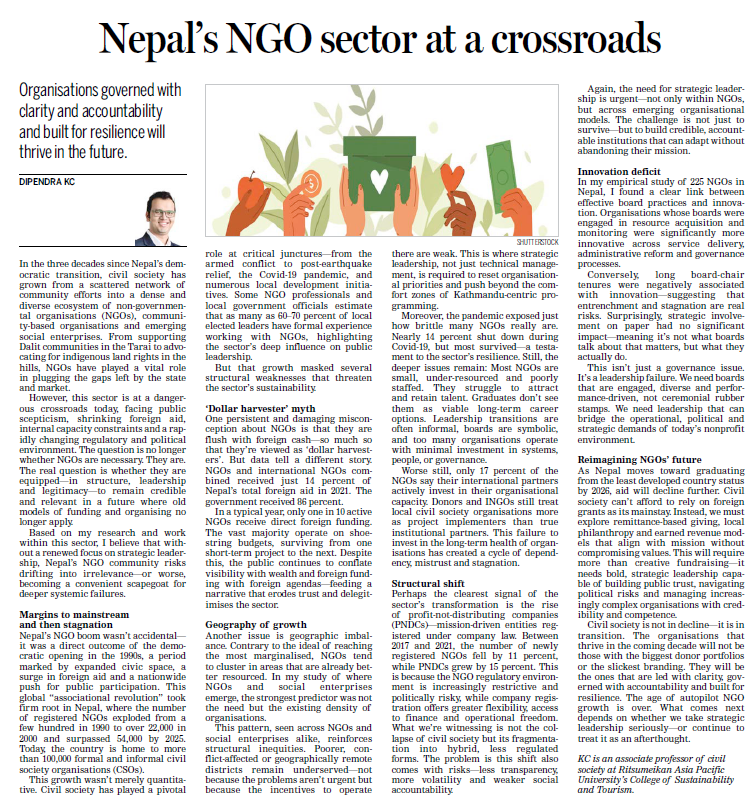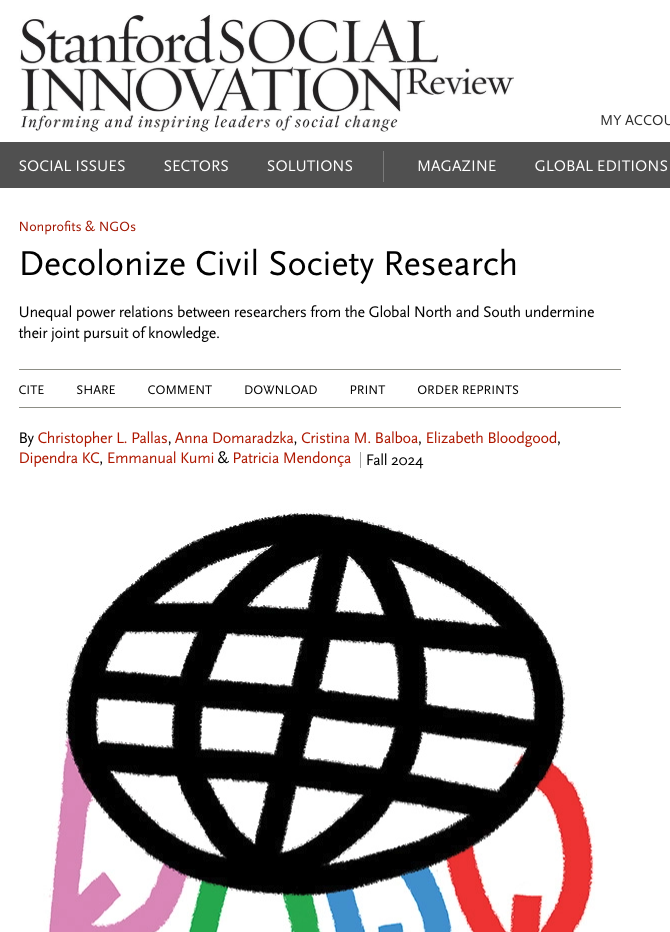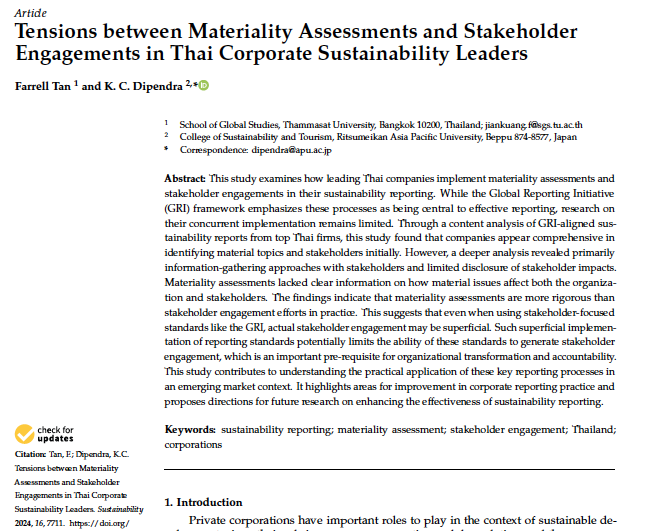-
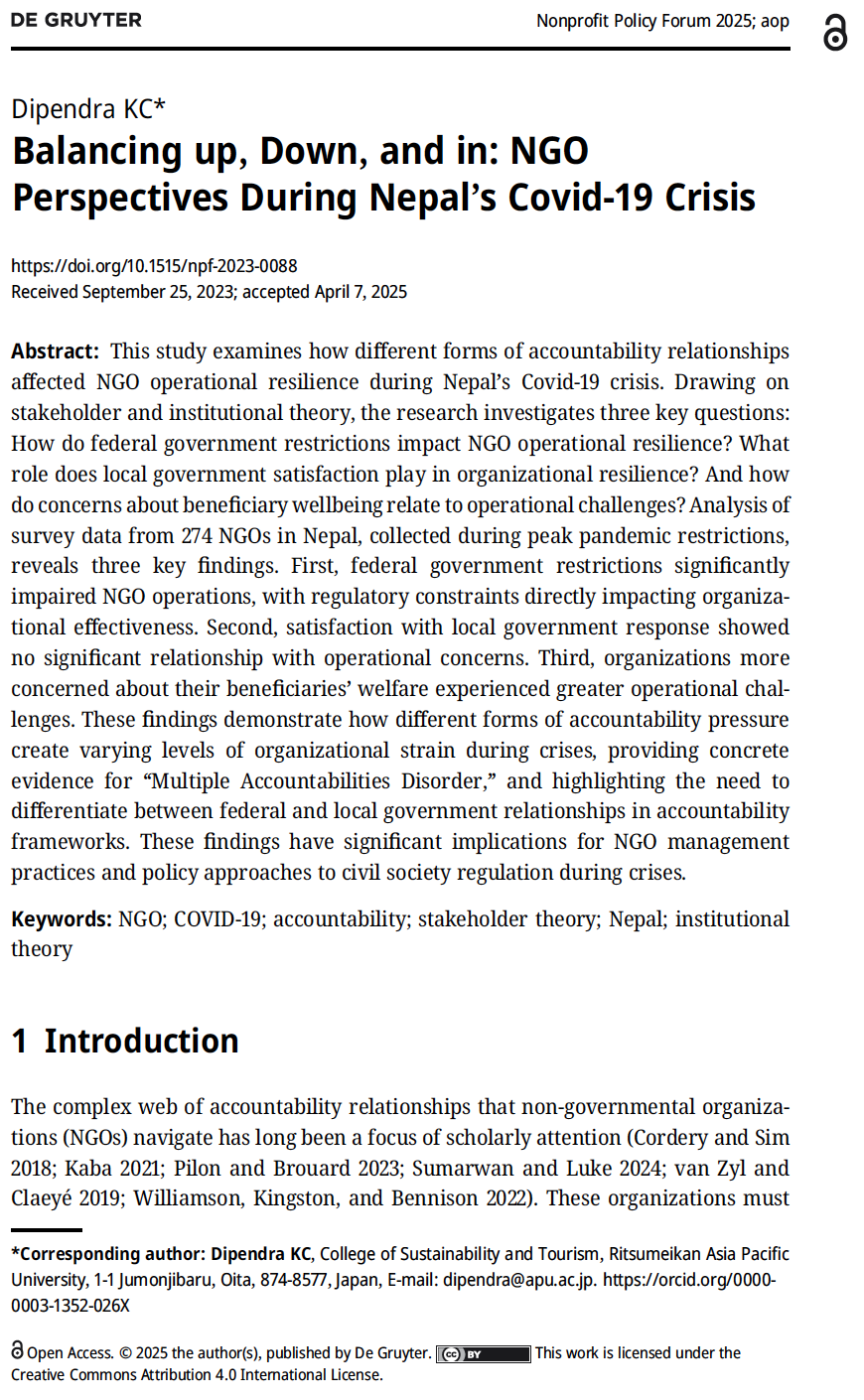
Balancing up, Down, and in: NGO Perspectives During Nepal’s Covid-19 Crisis
Published in Nonprofit Policy Forum, this study explores how varying forms of accountability relationships influenced the operational resilience of NGOs during Nepal’s Covid-19 crisis. Grounded in stakeholder and institutional theory, the research addresses three central questions: the impact of federal government restrictions on NGO operations, the effect of local government satisfaction on organizational resilience, and…
-
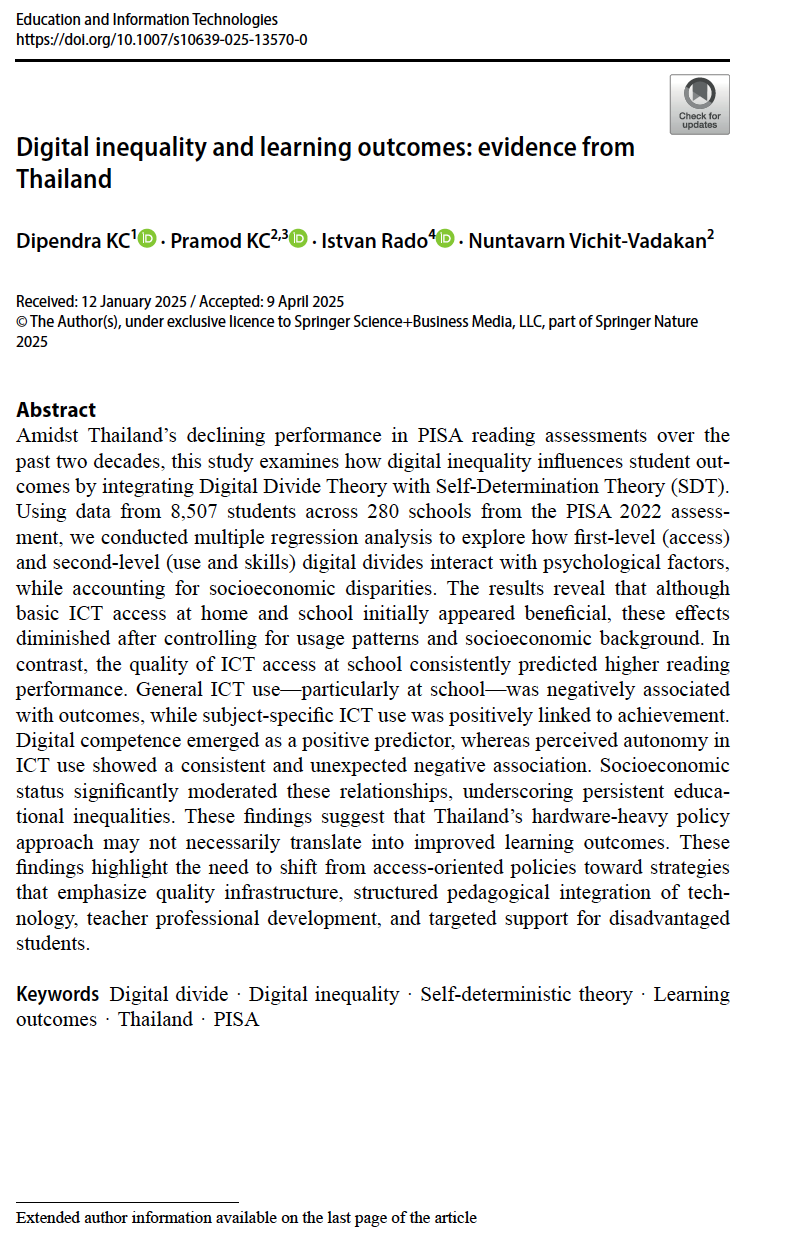
Digital inequality and learning outcomes: evidence from Thailand
This article, published in the Journal of Education and Information Technologies (EAIT), contributes to ongoing discussions at the intersection of information technology and education. The study was led as an extension of my prior work with the International Telecommunication Union (ITU) and the United Nations Educational, Scientific and Cultural Organization (UNESCO), driven by a continued…
